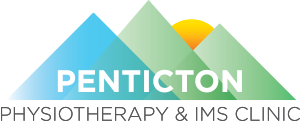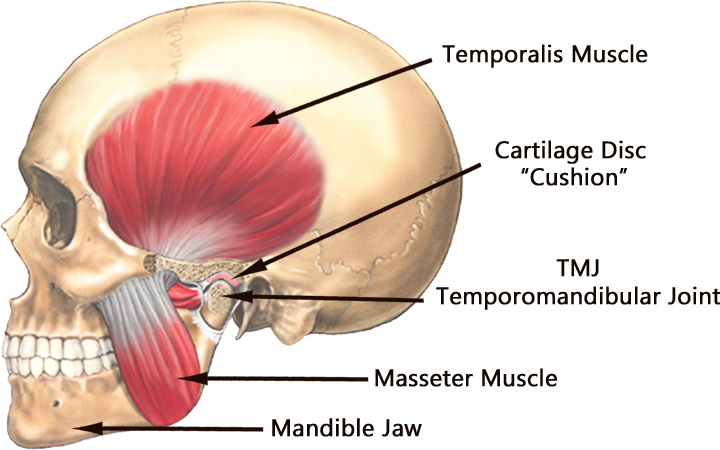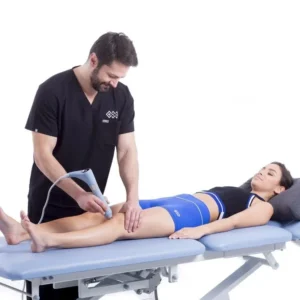The jaw, technically known as the temporomandibular joint (or TMJ for short), is a joint in the body that we use constantly throughout the day, yet often isn’t treated correctly when you find yourself with jaw pain or dysfunction. This article will help explain what the TMJ is, how it works, and common reasons as to why you can develop TMJ dysfunction.
What is the TMJ?
The TMJ are a pair of joints that connect your jaw to your skull. These joints, alongside multiple muscles that connect in and around the TMJ, help you to open and close your jaw, and slide your lower jaw to the sides and also forwards. When you open your mouth to talk, eat, yawn or swallow, the TMJ works in tandem with the surrounding muscles to allow us to do this. One interesting fact about the TMJ is that when you open your jaw really wide (think taking a big bite of an apple), the TMJ actually dislocates (before then going back into place when you close your mouth)! But don’t worry, it is supposed to do this, and in fact is the only joint in the body which is designed to do so.
What is TMJ dysfunction?
TMJ dysfunction is when you have an issue with your jaw, and it stops working correctly. Common symptoms of this include pain in the jaw, teeth or face, an inability to open your mouth wide, clicking when you open your mouth, and locking of the jaw. TMJ dysfunction can also cause neck pain and/ or headaches and tinnitus (ringing in your ears).
What causes TMJ dysfunction?
TMJ dysfunction can be caused by a number of things. The most common reason to have TMJ dysfunction or pain is because the muscles that surround your jaw or neck become tight and irritated. If these muscles become tight, they can cause pain in your jaw or your head, and also limit your ability to open your mouth wide. It is also possible for you to have an issue with a small disc which is inside the TMJ, which can cause your jaw to lock if it isn’t working properly. It is important to review with a physiotherapist or dentist if you have any of the previous symptoms to help you figure out exactly what is going on in your case.
How can physiotherapy help with TMJ dysfunction?
The first thing a physiotherapist will be able to help you with is to help diagnose exactly what is causing your TMJ dysfunction. This is important to establish because when we understand what is causing the problem, we can help prevent it from happening from again.
Once your issue has been diagnosed by your physiotherapist, it is important to get it worked on to help resolve the underlying issue (which is typically muscular in nature). Your physiotherapist will be able to help provide you with advice and exercises to help you relax your jaw muscles, which are important long-term solutions to help you improve your ability to open your mouth wide, and to look at common triggers of TMJ pain (such as clenching your teeth, or eating a lot of hard food (such as nuts or apples)), which can help prevent you from developing TMJ pain in the first place.
Your physiotherapist will also be trained to complete a number of different treatment techniques specifically for the TMJ, which include massage-like treatment for muscles either inside your mouth or external to your jaw, manual therapy to the TMJ itself, or IMS to some of the big muscles around your jaw and neck (it is worth noting that it is not uncommon to have tightness or stiffness in your neck when you have TMJ issues, and this may be an area the physiotherapist also works on to help with your TMJ problem).
We hope this article has been helpful in helping you to understand a bit more about the underlaying issues behind your TMJ problem, and how we can help resolve them for you. If you would like to learn more information, please call the clinic at 250-493-1152, or you can book online by clicking here. Please note, our therapists who have received additional training in TMJ issues are Jessica Slivka (physiotherapist), Catherine Fussell (physiotherapist), Chelsea Rieu (physiotherapist) and Lauren Walker (athletic therapist & kinesiologist).







